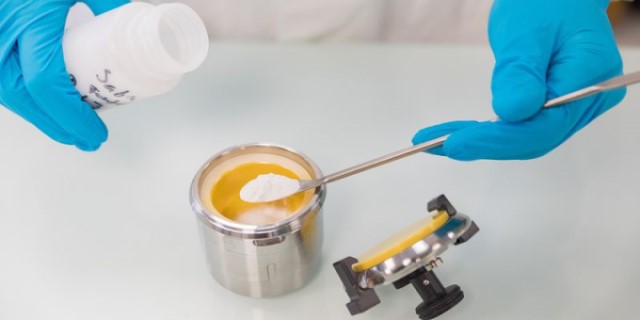
Single-ion conducting polymer electrolytes are a very promising approach to achieve high-performance solid-state lithium-metal batteries. Herein, a highly conductive, solvent-free polymer electrolyte is designed and synthesized by a unique donor–acceptor copolymerization. The polymer electrolyte is blended with PVdF–HFP to yield thin membranes. The electrolyte exhibits a high conductivity of 5 × 10−5 S cm−1 at 90 °C. The electrochemical stability window exceeds 4 V as determined by cyclic voltammetry. These excellent proprieties allow for the stable cycling of symmetric Li‖Li cells for more than 700 h with a maximum stripping/plating capacity of 0.6 mA h cm−2, which demonstrates the compatibility of the electrolyte with lithium-metal electrodes. Li‖LiFePO4 battery cells provide high capacities and good cycling stability at 80 °C, and more remarkably also at 40 °C. The results render this novel polymer electrolyte a very promising candidate for realizing truly solid lithium-metal batteries.
https://hal.science/hal-04734295


